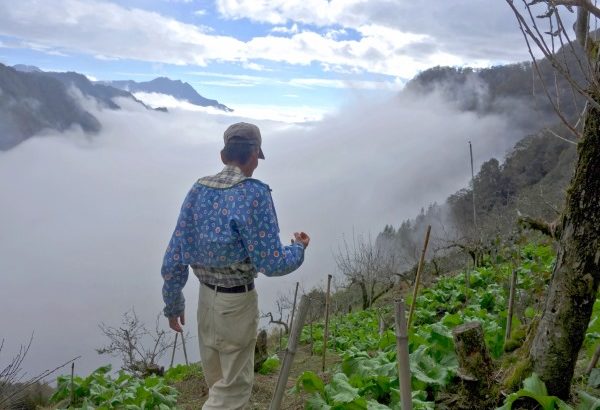Warm winter and dry farming suffer! 70% of the litchi blossoms were damaged, and the damage of the litchi stink bug intensified, and the Council of Agriculture started the subsidy.
Share + 1 Tweet Email
Drought affects hillside crops, and injured fields can apply for subsidies from relevant agricultural administration units! Since November last year, there has been insufficient rainfall and frequent droughts. Crops in the central and southern regions, including Gaojie pears, plums, peaches, plums, loquats, litchi and tea trees, have been affected. The Council of Agriculture held a press conference today (26) to explain the current situation of drought affecting crops and the corresponding actions, including "subsidies for natural disasters", "subsidies for waterway irrigation facilities", and "field technical management guidance". Farmers can apply for cash subsidies or equipment upgrading subsidies.


Dai Shunfa, director of the improvement field in Kaohsiung, photo by Duan Yaxin
Water shortage affects pollination and fruit size of loquat.
Gaojie pear and loquat are currently determined to be affected by drought. Zhan Guirong, head of the mountain pig loquat in Taichung News Agency, said that loquat was indeed affected. She said that drought will affect the humidity in the air, stamens must maintain a certain amount of moisture in order to successfully pollinate pollen on it, and poor pollination means a decline in flowering and fruiting. "or, bear fruit, but the fruit becomes smaller." She revealed that the recent lack of water and dryness did greatly affect the growth of loquat.
She further explains that it is usually the water from the mountain forest to maintain the moisture of the fruit trees, and recently there has been little rainfall, so they can only pick up water from the White Cold Town of the Xinhua News Agency to irrigate the fruit trees. As for the fact that the Council of Agriculture hopes to expand crop irrigation areas in Taiwan and bring many hillside crops into the water conservancy irrigation system, she says that although drought-related subsidies and guidance have not yet been received, if the government can really do something to help farmers, I'm sure I'll be happy to see it succeed.
High-contact pear farmers suggest that the government subsidize hillside irrigation equipment.
Dongshigao pear growers said that the warm winter climate this year is good for the grafting of high-grafted pears, but the drought has affected the follow-up growth of high-grafted pears. He explained that it takes nearly a month from grafting to flowering, and a warm climate is needed for fruit trees to activate and grow. Although temperature conditions are available, nutrition transport needs to pass through water, and the lack of water will affect the size of the pear. In the face of drought, he also suggested that government subsidies for irrigation equipment for hillside crops would be a more permanent solution, such as setting up large storage tanks in sloping fruit fields to facilitate farmers' access to them, and to regulate water use in times of water shortage.
Share + 1 Tweet Email
- Prev

More than 150 species of beautiful coral are visible in shallow seas, and the coast is threatened! Huantuan: Baosheng Recreation Area is not monitored and will be constructed soon
More than 150 species of beautiful coral are visible in shallow seas, and the coast is threatened! Huantuan: Baosheng Recreation Area is not monitored and will be constructed soon
- Next

The Luoshao agricultural yoga workshop begins to sign up!
The Luoshao agricultural yoga workshop begins to sign up!
Related
- A course of planting techniques and methods on how to grow carrots
- How to plant the latest tulips?
- Is it better to pick tea in the morning or in the afternoon? When is the best time for tea to be picked? what is the third or fifth tea?
- Launch Yuanxiao Happy combination Haocha + Tea Yuan healthy Taste
- Penghu Tourism "Fireworks 20 Parade with You"
- 2022 West Lake Happiness holds "Digital Revitalization Voucher" and draws iphone13 and laptop.
- Banqiao Fuzhou social houses are designed to change start-up combined with police elimination to create a safe and livable environment
- The convenient measure of "mechanical weeding" in Xinbei has been abused and the Agriculture Bureau has imposed heavy penalties on the illegal land consolidation.
- Changgeng University Joins Hands with Four Memory Factories to Rescue Memory Talent Shortage
- The list of Taiwan's top 100 MVP managers is listed by the Director-General of the Farmers' Association of Sanxia District.

